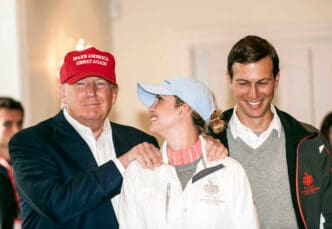Executive Summary
The Story So Far
Why This Matters
Who Thinks What?
Jared Kushner, President Donald Trump’s son-in-law and former senior adviser, has returned to the forefront of Middle East diplomacy, playing a pivotal role in finalizing a Gaza ceasefire deal this week. The arrangement, reached after intensive negotiations in Sharm el-Sheikh, Egypt, and subsequent approval by Israel’s Cabinet, aims for the release of all hostages from Gaza and a partial withdrawal of Israeli forces. President Trump lauded Kushner’s involvement, signaling a significant diplomatic push to resolve the ongoing conflict.
Negotiation and Approval
President Trump expressed strong optimism about peace in Gaza, attributing it to Kushner’s capabilities. “I have Jared,” Trump stated, adding, “Find anybody more capable. And we have the A-plus team working on it.” Kushner, alongside Trump’s current Middle East envoy Steve Witkoff, traveled to Sharm el-Sheikh, Egypt, to broker the agreement.
US officials confirmed that Trump spent hours communicating with Kushner and Witkoff before and after announcing the deal. Following breakthroughs in Egypt, the two envoys traveled to Israel, presenting the plan to Israel’s Cabinet on Thursday evening, which subsequently approved it. Sources indicated the negotiating teams operated on minimal sleep, working through extensive discussions to bridge final differences.
Remaining Challenges and Future Role
Despite the initial agreement, several critical details remain outstanding. These include the potential disarmament of Hamas and the future governance structure of Gaza. A senior US official noted the delicate nature of the situation, emphasizing the need to ensure all parties fulfill their obligations and to quickly address any misunderstandings.
Kushner is expected to maintain a very active role in the subsequent phases of the negotiations, according to a White House official. The aim is to achieve a full withdrawal, a lasting ceasefire, and the complete return of hostages, before moving into the complex phase of determining Gaza’s future.
Business and Diplomatic Interests
Kushner’s envoy role marks a return to public global diplomacy, having previously declined a formal position in Trump’s second administration. For months, he has informally advised administration officials on Middle East diplomacy and contributed to a 20-point plan for resolving the conflict. He reportedly intends to revert to this informal advisory capacity once the Gaza deal is finalized.
His involvement has drawn scrutiny due to his business ventures. After leaving Washington, Kushner founded Affinity Partners, an investment fund with substantial backing from sovereign wealth funds in the Gulf, including Saudi Arabia, the United Arab Emirates, and Qatar. Notably, Qatar has played a key mediating role in the Gaza conflict.
Last month, Kushner’s firm, in partnership with Saudi Arabia’s sovereign wealth fund and other investors, executed a $55 billion deal to take video-game maker Electronic Arts private. This setup has been described as illustrative of Trump’s preference for relying on wealthy, longtime confidants to execute objectives, with ethical questions regarding their complex finances largely overlooked.
White House press secretary Karoline Leavitt defended Kushner’s role, stating it was “despicable” to suggest his involvement was inappropriate given his relationships and efforts toward peace. A White House official indicated Kushner views securing a peace deal between Israel and Hamas as superseding his business interests in the region, prioritizing legacy over financial gains.
Continued Influence and Relationships
Kushner’s central role in the talks comes as no surprise to those within the Trump administration, given his enduring influence with the President. He and Steve Witkoff, a real estate developer and longtime friend of Trump’s, have maintained a close personal and professional relationship, with Kushner frequently advising Witkoff on interactions with Arab leaders.
Sources indicate Kushner has “never really been gone” from Middle East diplomacy, maintaining a quiet, behind-the-scenes role and frequent communication with Witkoff. David Schenker, who served as assistant secretary of state for Middle East issues during Trump’s first term, described Kushner as “the administration’s sort of ‘Mighty Mouse’ on this,” emphasizing his authority.
The discussions gained momentum after an Israeli strike targeting Hamas leaders in Doha on September 9, which catalyzed efforts to create a comprehensive plan to end the fighting. Kushner’s long-standing personal relationships with influential figures, including Saudi Crown Prince Mohammed bin Salman and Israeli Prime Minister Benjamin Netanyahu, are seen as crucial assets in these negotiations. However, comments he made in 2024 regarding Gaza’s “waterfront property” potential, echoed by President Trump’s vision of a “Middle Eastern Riviera,” have drawn controversy.
Moving Forward
The successful negotiation of the initial phase of a Gaza ceasefire marks a significant return for Jared Kushner to high-stakes diplomacy, blending his established relationships in the Middle East with his ongoing advisory role to President Trump. While the deal represents a critical step towards de-escalation and hostage release, its full implementation and the resolution of remaining complex issues will require sustained, high-level engagement.








